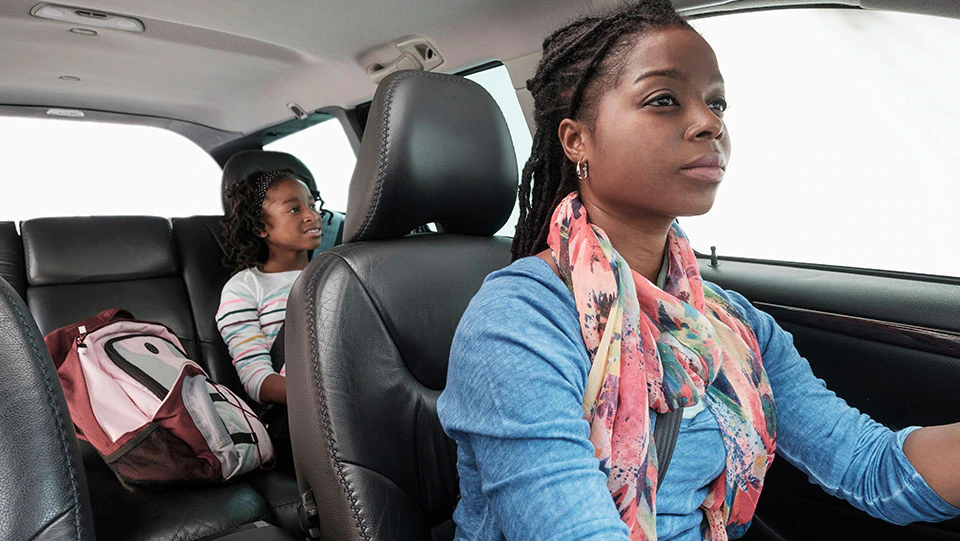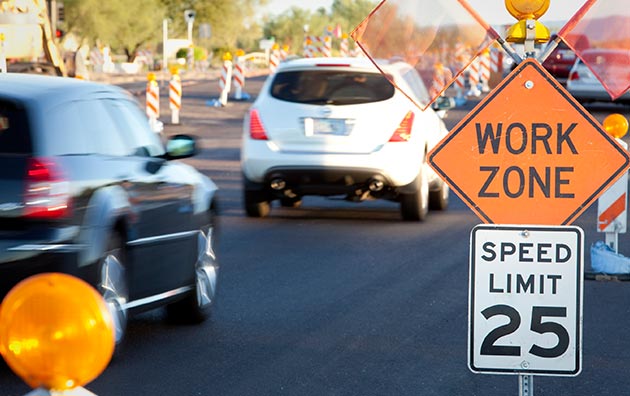Truck Zone Safety

Driving a large truck can be a tough – and dangerous – job. Weighing up to 80,000 pounds compared to the average American car’s 3,0001, the size of a tractor-trailer increases brake distance, can block visibility for other drivers and presents unique challenges for everyone sharing the road.
Staying safe on the road is not the truck driver’s responsibility alone. In fact, in 78% of car-truck accidents, the car was at fault.2 Drivers should learn to avoid the truck zone and drive safely around large trucks. Travelers specialist Renee Lawson shows you how in this video.
(DESCRIPTION)
Text, Renee Lawson, Travelers Safety Specialist.
(SPEECH)
RENEE LAWSON: There are hundreds of thousands of truck accidents every year. Driving a vehicle this size, that's a tough job. Imagine trying to stop 80,000 pounds going 55 miles an hour.
(DESCRIPTION)
Avoiding the Truck Zone. In an animation, a semi-truck travels behind one car as a second car switches lanes and merges in between them.
(SPEECH)
That tempting space trucks leave in front of them, well, it's there because they need it. When you cut in front of a truck, you're taking that buffer room away, which leaves them no space to stop, which is a really bad idea.
(DESCRIPTION)
An exclamation point warning symbol appears above the merging car, which appears in a box labeled Truck Zone.
(SPEECH)
Driving too closely behind a truck isn't safe either. A tractor trailer blocks a huge part of your view, making it hard to see what's up ahead. If they have to stop, your only warning is their brake lights. And sometimes, that's just not enough. So always allow room for the truck zone and give yourself a few extra seconds of space in front of or behind them.
Remember the truck zone when you're on the road. And don't forget to share the safety with your friends and family.
[MUSIC PLAYING]
(DESCRIPTION)
Text, get more safety tips at travelers dot com slash think safe. The information in this video is intended for use as a guideline and is not intended as, nor does it constitute, legal, technical or professional advice. Travelers does not warrant that adherence to any recommendations, best practices, or guidelines will result in a particular outcome. In no event will Travelers or any of its subsidiaries or affiliates be liable to anyone who has access to or uses the information provided in the video. Travelers, Hashtag Think Safe.
Sources
1 Highway Loss Data Institute, http://www.iihs.org/
2 Virginia Tech Transportation Institute, https://www.vtti.vt.edu/moreinformation/sharing-the-road.html



